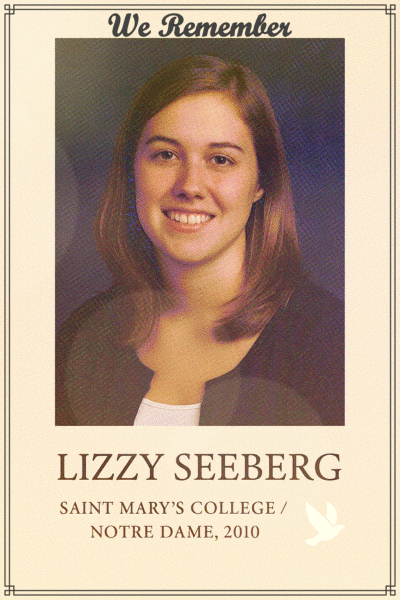🕊️ It is nothing new for colleges to support athletes, not female students. Lizzy Seeberg was just 19 years old—a bright student from Saint Mary’s
🕊️
It is nothing new for colleges to support athletes, not female students.
Lizzy Seeberg was just 19 years old—a bright student from Saint Mary’s College, full of potential and promise. But in August 2010, she became something else: a name in the long list of young women failed by institutions that were supposed to protect them.
She did everything we tell young women to do. She reported the assault. She wrote it down. She told people. She went to campus police.
But the man she named was a football player for the University of Notre Dame.
The system closed ranks.
Instead of rallying around her, the institution seemed to rally around him.
“I was scared. I couldn’t move,” Lizzy said of the assault. And when the institutional silence followed—that’s when the harm deepened.
A closed-door disciplinary hearing.
A “not responsible” verdict.
No suspension. No accountability. No justice.
Meanwhile, Lizzy—still processing her trauma—was receiving intimidating messages from the football player’s friends. Just nine days after reporting the assault, Lizzy died by suicide.
Her death was not just a personal tragedy—it was a devastating institutional failure.
🏈 When the Athlete Wears the Armor of the Institution
Lizzy’s story was later featured in The Hunting Ground (2015), a searing documentary that exposed how universities—especially those with powerhouse athletic programs—protect reputations and revenue instead of students.
Her case shows us what survivors have long known: athletic status often outweighs student safety.
Big donors and big games bring in big money.
Survivors, in contrast, bring whispers and lawsuits—and too often, silence.
And when the accused is a football player? The silence becomes strategy.
Lizzy never had the chance to speak publicly. But she deserves to be heard.
Her father, Tom Seeberg, has carried her story forward. In interviews, he reminds us: this wasn’t just about one case—this is about a culture.
A culture where women are told to speak up, but when they do, institutions speak over them.
📢 Why This Still Matters
Lizzy’s story is not an isolated incident. It is emblematic of a wider pattern that spans decades, campuses, and countless unnamed young women:
In campus after campus, football fields become fortresses.
Athletic departments operate like kingdoms, often shielded from scrutiny.
Female students become collateral damage when reputations, rankings, and revenue are on the line.
From HBCUs to Ivy Leagues, community colleges to powerhouse programs—this pattern is not new. But it must end.
We owe Lizzy—and every girl who walked into a college hoping to learn, not to survive—a truth:
You are not crazy.
You are not dramatic.
You are not alone.
You are not the problem.
🌹 At RosasChildren, We Remember
We carry Lizzy’s name in our hearts.
We tell her story not to reopen wounds, but to call institutions to account.
We remind the world: there is no scholarship, no game, no jersey, and no reputation worth more than a girl’s life.
Let us build schools, not battlegrounds.
Let us demand classrooms, not courtrooms.
Let us raise the standard so high that no institution will dare fail another daughter again.
